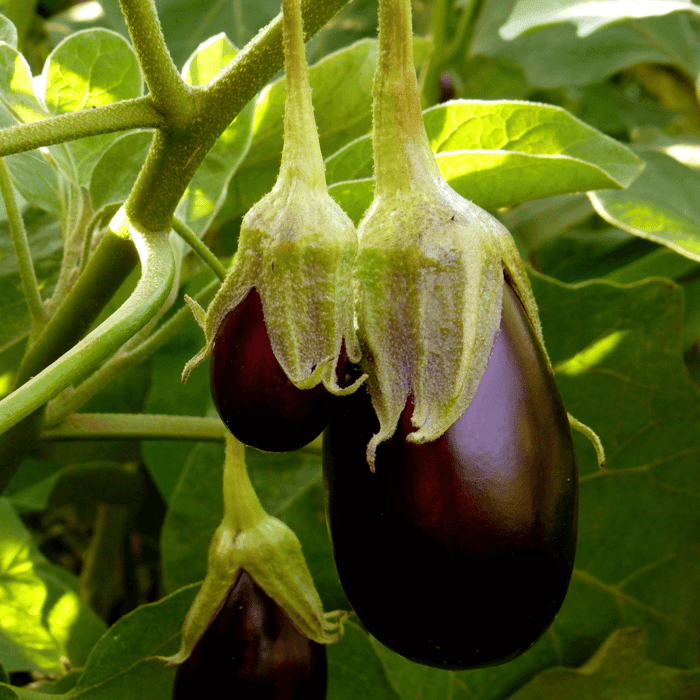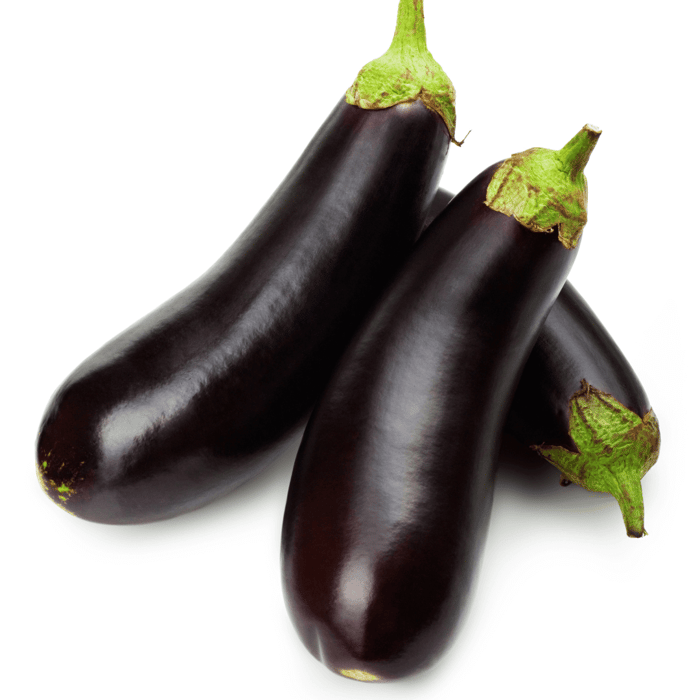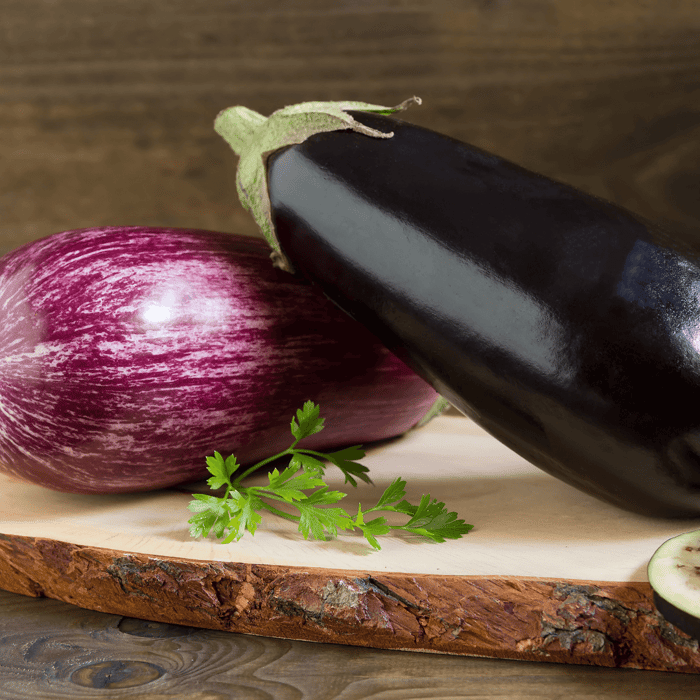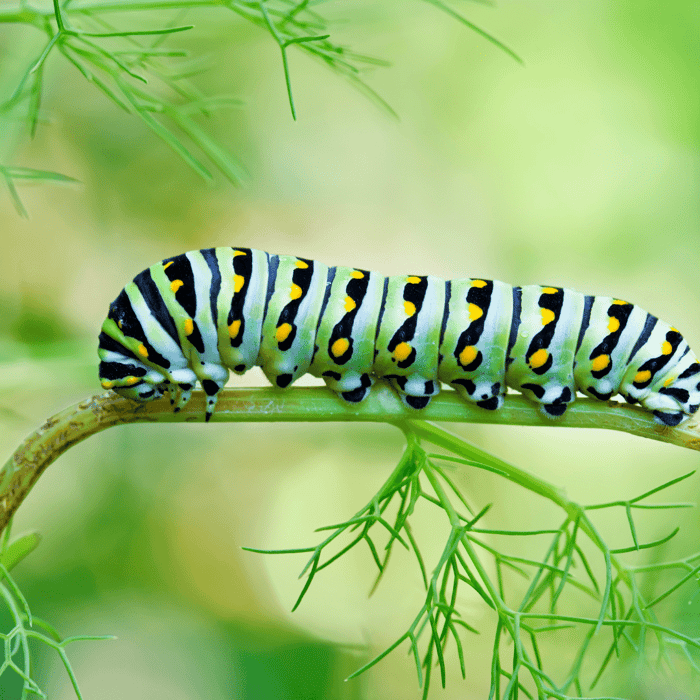Hello fellow gardeners! As a passionate gardener, I know that one of the most rewarding aspects of gardening is growing a beautiful and thriving vegetable garden. If you're short on space or want to try container gardening, you might wonder, "Can eggplant grow in a pot?" Well, I'm here to tell you that eggplants can indeed be grown in pots! In this in-depth article, we'll explore everything you need to know about increasing eggplants in banks, covering all the essentials for a successful harvest.
Table of Contents
- Introduction to Eggplants and the Nightshade Family
- Selecting the Right Eggplant Variety for Container Gardening
- Choosing the Perfect Container for Your Eggplants
- Preparing Your Potting Soil
- Planting Your Eggplant Seeds and Transplanting Seedlings
- Caring for Your Potted Eggplants: Watering, Fertilizing, and Sunlight
- Supporting Your Eggplants with Tomato Cages or Stakes
- Pests, Diseases, and How to Deal with Them
Black Beauty Eggplant Seeds

$2.49
Black Beauty Eggplant Seeds - Heirloom, Non-GMO, Non-Hybrid, Open-Pollinated | Perfect for Home Gardeners and Farmers Grow delicious and beautiful Black Beauty Eggplants with our premium-quality heirloom seeds! These non-GMO, non-hybrid, and open-pollinated eggplant seeds are perfect for home gardeners… read more
1. Introduction to Eggplants and the Nightshade Family
Eggplants (Solanum melongena) are part of the nightshade family, including tomatoes and peppers. This warm-season crop thrives in full sun and requires a long growing season to produce its delicious, versatile fruits. Traditionally eggplants are grown in a vegetable garden, but eggplants can be grown in pots, making them an excellent option for container gardening enthusiasts and urban gardeners.
2. Selecting the Right Eggplant Variety for Container Gardening
When choosing an eggplant variety to grow in a pot, consider the following factors:
- Size: Smaller varieties are better suited for container gardening, requiring less growing space. Some recommended types include 'Patio Baby,' 'Little Prince,' and 'Fairy Tale.'
- Growing conditions: Some eggplant seed varieties are more tolerant of cooler temperatures and can produce fruit even if the warm soil isn't as consistent as they would prefer.
- Disease resistance: Select varieties resistant to common diseases, such as verticillium and fusarium wilts, to increase your chances of success.
3. Choosing the Perfect Container for Your Eggplants
Eggplants in pots require a container with the following characteristics:
- Size: The pot should be at least 12-14 inches in diameter and 18-24 inches deep, allowing for proper root growth.
- Material: Choose a container made from ceramic, plastic, or wood. Each material has advantages and disadvantages, but all can work well for growing eggplants.
- Drainage holes: Ensure your container has multiple drainage holes to prevent waterlogging and root rot.
4. Preparing Your Potting Soil
Eggplants require well-draining, nutrient-rich potting soil. Follow these steps to prepare the perfect potting mix:
- Choose a high-quality potting mix that contains a blend of peat moss, vermiculite, and perlite. You can also create your own mix by combining equal parts of these ingredients.
- Add a slow-release fertilizer to provide the necessary nutrients throughout the growing season.
- Check the soil pH; eggplants prefer slightly acidic soil between 6.0 and 6.8. Adjust the pH if necessary by adding lime (to raise pH) or sulfur (to lower pH).
5. Planting Your Eggplant Seeds and Transplanting Seedlings
Eggplants require a long growing season, so it's best to start them indoors 6-8 weeks before the last expected frost date. Follow these steps to plant your eggplant seeds and transplant seedlings:
- Sow eggplant seeds in seed trays or small pots with a moist seed-starting mix. Plant the seeds about ¼-inch deep and keep the soil consistently moist.
- Place the seed trays in a warm location with temperatures between 70-80°F (21-27°C). Use a seedling heat mat if necessary to maintain these temperatures.
- Once the seedlings are 2-3 inches tall and have developed their first set of true leaves, transplant them into larger pots filled with the prepared potting mix. Bury the seedlings to their first set of leaves to encourage strong root development.
- Gradually harden off the seedlings by exposing them to outdoor conditions for a few hours each day, increasing the time spent outdoors over a week or two.
- After the last frost date, when the seedlings are 6-8 inches tall, transplant them into their final container. Position the plant in a sunny spot that receives at least 6-8 hours of full sun daily.
Long Purple Eggplant Seeds

$2.49
Long Purple Eggplant Seeds – Heirloom, Non-GMO, Non-Hybrid, Open-Pollinated | Planting, Growing, and Harvesting Guide Discover the beauty and flavor of Long Purple Eggplant with our premium heirloom seeds, meticulously selected for gardeners who value quality and productivity. Perfect for… read more
6. Caring for Your Potted Eggplants: Watering, Fertilizing, and Sunlight
Proper care is crucial for growing healthy eggplants in pots. Follow these guidelines to ensure your plants receive the necessary water, nutrients, and sunlight:
- Watering: Keep the soil consistently moist but not waterlogged. Water the plants deeply, allowing the excess water to drain through the drainage holes. In hot weather, you may need to water daily.
- Fertilizing: Apply a balanced liquid fertilizer every 2-4 weeks to give the eggplants the required nutrients. Eggplants require a lot of nutrients, so regular feeding is essential for successful fruit production.
- Sunlight: Position your eggplants in a sunny spot where they receive at least 6-8 hours of full sun daily. Rotate the pot every few days to ensure even sunlight exposure.
7. Supporting Your Eggplants with Tomato Cages or Stakes
Eggplants can become top-heavy when loaded with fruit, so providing them with support is essential. Use a tomato cage or sturdy stake to keep the plants upright and prevent damage to the stems. Insert the support structure into the pot when transplanting the seedlings, taking care not to damage the roots.
 8. Pests, Diseases, and How to Deal with Them
8. Pests, Diseases, and How to Deal with Them
Eggplants can be affected by a variety of pests and diseases. The most common problem affecting eggplants is the flea beetle, which can cause significant damage to the leaves. Other pests include aphids, whiteflies, and spider mites. Use insecticidal soap, neem oil, or other organic pest control methods to protect your eggplants from these pests.
Some common diseases affecting eggplants include verticillium wilt, fusarium wilt, and bacterial wilt. To prevent these diseases, choose disease-resistant varieties, maintain proper watering practices, and ensure adequate air circulation around the plants.
In conclusion, eggplants can be successfully grown in pots, provided you choose the right variety, use a suitable container, and care for the plants properly. By following the guidelines in this article, you'll be well on your way to enjoying a bountiful harvest of delicious eggplants from your container garden. Happy gardening!







